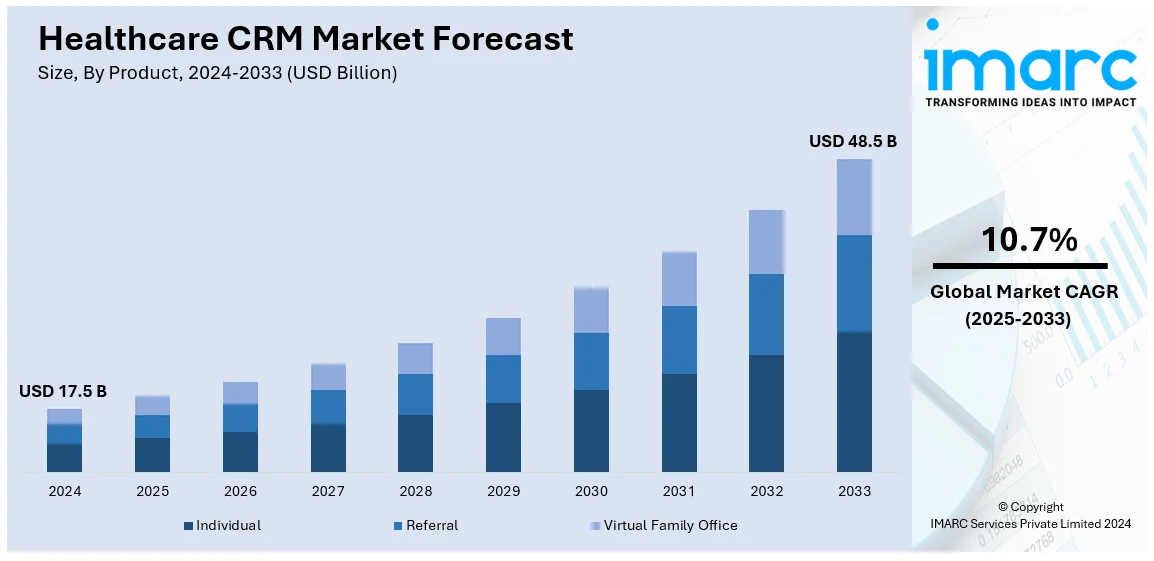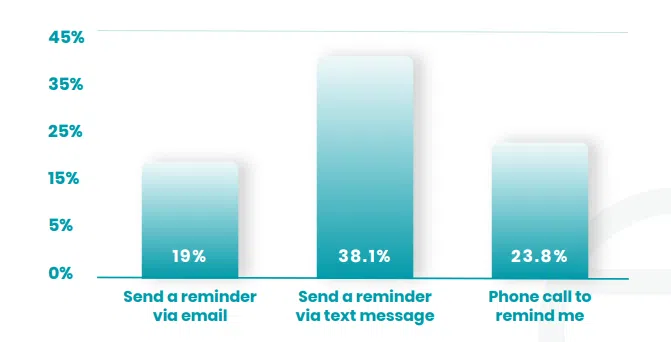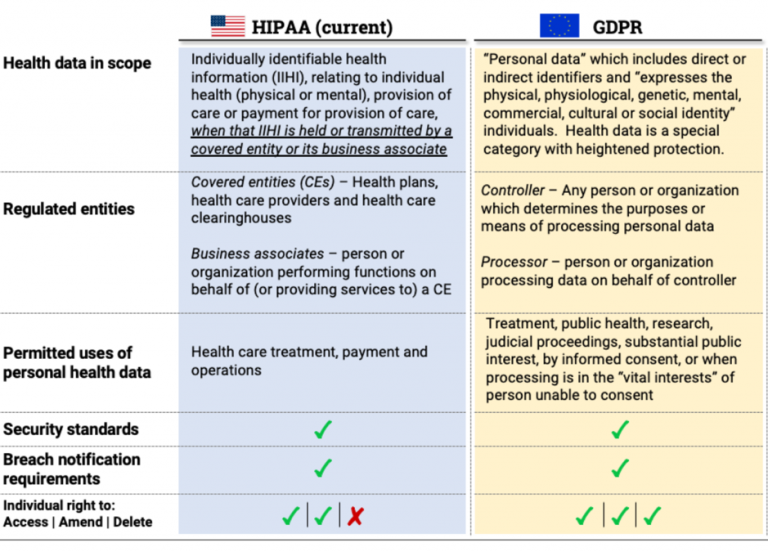Must-Have Features for Healthcare CRM Systems
In the dynamic landscape of modern healthcare, the adoption of healthcare CRM systems has become indispensable. These systems streamline patient management, enhance communication, and improve overall efficiency in healthcare delivery. With an increasing focus on patient-centric care, the demand for robust CRM solutions tailored to healthcare is surging. This blog delves deep into the must-have features of healthcare CRM systems, examining their importance and transformative potential.
Understanding Healthcare CRM Systems
Healthcare CRM systems are specialized tools designed to help medical organizations manage interactions with patients, staff, and other stakeholders. Unlike generic CRM platforms, these systems cater to the unique needs of the healthcare sector, addressing challenges such as compliance with regulations, data security, and the complexity of patient journeys.
According to IMARC Group, the global healthcare CRM market size was valued at USD 17.5 Billion in 2024. Looking forward, IMARC Group estimates the market to reach USD 48.5 Billion by 2033, exhibiting a CAGR of 10.7% during 2025-2033.

Image source: IMARC Group
As a software development company deeply invested in healthcare IT solutions, we understand the critical components that make a healthcare CRM truly effective.
Seamless Patient Management
One of the foundational features of a healthcare CRM system is its ability to manage patient information comprehensively. This includes capturing demographic details, medical history, appointment schedules, and treatment plans. A well-designed CRM ensures that healthcare providers have instant access to a patient’s complete profile, enabling personalized and timely care. According to a report by HIMSS, organizations leveraging advanced CRM platforms have seen a 40% improvement in patient satisfaction rates.
Enhanced Communication Tools
Effective communication is the backbone of successful healthcare delivery. Healthcare CRM systems facilitate streamlined communication between patients and providers through features like appointment reminders, follow-up notifications, and secure messaging platforms. These tools reduce no-show rates and ensure patients stay informed about their treatment plans. For instance, a study by Hpiinc found that 88% of the healthcare leaders surveyed use these reminders in their organizations and automated appointment reminders reduced no-show rates.

Image source: Hpiinc
Data Security and Compliance
With the rise of digital transformation in healthcare, ensuring data security is non-negotiable. Healthcare CRM systems must adhere to stringent compliance standards such as HIPAA in the United States or GDPR in Europe.

Image source: itirra
Robust encryption, multi-factor authentication, and regular audits are essential features that protect sensitive patient data from breaches. Healthcare organizations that prioritize security not only safeguard their reputation but also foster trust among patients.
Integration with Existing Systems
The ability to integrate seamlessly with electronic health records (EHRs), practice management software, and other healthcare IT systems is crucial for a CRM to deliver its full potential. Integration eliminates data silos, enabling healthcare providers to access consolidated information. This holistic view of patient data facilitates better decision-making and enhances operational efficiency.
Image source: Faith Action
Predictive Analytics and AI Integration
Modern healthcare CRM systems leverage predictive analytics and artificial intelligence to deliver proactive care. By analyzing patient data, these systems can identify potential health risks, recommend preventive measures, and even suggest personalized treatment options. AI-driven CRMs also enhance administrative efficiency by automating routine tasks such as appointment scheduling and billing. This allows healthcare providers to focus more on patient care.
Telehealth Support
With telehealth becoming a cornerstone of modern healthcare, CRM systems must include features that support virtual consultations. These include video conferencing capabilities, secure file sharing, and integration with remote monitoring devices. The rise of telehealth, accelerated by the COVID-19 pandemic, has highlighted the need for CRM systems that cater to this mode of care delivery. A McKinsey report noted a 38-fold increase in telehealth usage since pre-pandemic levels.
Scalability and Customization
Healthcare organizations vary in size and scope, from small clinics to large hospital networks. A CRM system must be scalable and customizable to meet the unique needs of each institution. Customization options enable organizations to tailor workflows, reports, and dashboards according to their specific requirements. This adaptability ensures that the CRM remains a valuable tool as the organization grows or evolves.
Reporting and Analytics
Comprehensive reporting and analytics are vital for tracking performance metrics and identifying areas for improvement. Healthcare CRM systems should offer customizable reports on patient engagement, revenue generation, and operational efficiency. Real-time analytics provide actionable insights that help organizations optimize their services and enhance patient outcomes.
Mobile Accessibility
In today’s mobile-first world, healthcare providers require CRM systems that offer mobile accessibility. This feature ensures that providers can access critical patient information, update records, and communicate with patients on the go. Mobile-friendly CRMs also enhance patient engagement by offering apps or portals where patients can schedule appointments, view test results, and access educational resources.
Have a Project Idea in Mind?
Get in touch with Savvycom’s experts for a free consultation. We’ll help you decide on next steps, explain how the development process is organized, and provide you with a free project estimate.
Why Healthcare CRM Systems Are Essential
The adoption of healthcare CRM systems is no longer a luxury but a necessity. In an era defined by data-driven decision-making and patient-centered care, these platforms are transforming the healthcare landscape. Healthcare CRM systems empower organizations to deliver highly personalized care by providing a 360-degree view of patient interactions, medical history, and preferences. This holistic approach enables providers to anticipate patient needs and deliver tailored solutions that foster trust and loyalty.
Operational efficiency is another critical factor driving the necessity of healthcare CRM systems. These platforms streamline workflows by automating routine tasks such as appointment scheduling, follow-up reminders, and billing processes. This reduces administrative burdens, allowing healthcare professionals to focus more on patient care. Additionally, healthcare CRMs enhance collaboration across departments by centralizing data and ensuring seamless communication, which is essential in complex healthcare settings.
 Furthermore, healthcare CRM systems are pivotal in adapting to the ever-changing demands of the healthcare industry. With the rise of telemedicine, value-based care, and patient engagement initiatives, organizations need robust tools to stay competitive. Features such as data security, real-time analytics, and predictive modeling are instrumental in meeting regulatory requirements, anticipating patient needs, and improving overall outcomes. By integrating advanced technologies like AI and machine learning, healthcare CRMs enable predictive analytics that can identify at-risk patients, forecast resource requirements, and optimize treatment plans. This level of insight is crucial for proactive healthcare delivery and long-term success.
Furthermore, healthcare CRM systems are pivotal in adapting to the ever-changing demands of the healthcare industry. With the rise of telemedicine, value-based care, and patient engagement initiatives, organizations need robust tools to stay competitive. Features such as data security, real-time analytics, and predictive modeling are instrumental in meeting regulatory requirements, anticipating patient needs, and improving overall outcomes. By integrating advanced technologies like AI and machine learning, healthcare CRMs enable predictive analytics that can identify at-risk patients, forecast resource requirements, and optimize treatment plans. This level of insight is crucial for proactive healthcare delivery and long-term success.
Lastly, the role of healthcare CRMs in driving healthcare digital transformation cannot be overstated. These systems act as the backbone for integrating emerging technologies, such as IoT devices and wearable health monitors, into existing care models. By leveraging data from diverse sources, healthcare CRMs provide actionable insights that enhance decision-making and pave the way for innovation. As patient expectations continue to evolve, healthcare organizations must invest in CRM systems to remain agile, efficient, and patient-focused.
Savvycom: Your Partner in Healthcare CRM Development
At Savvycom, we specialize in developing custom healthcare software tailored to meet the unique needs of healthcare providers. Our expertise spans healthcare IT solutions, outsourcing in healthcare, and healthcare digital transformation consulting. We are committed to leveraging tech innovations in healthcare to create solutions that enhance patient care and streamline operations. Whether you’re exploring healthcare app ideas or seeking a reliable partner for healthcare solution development, Savvycom is here to help. Let us assist you in navigating the future of healthcare with innovative and efficient CRM systems.
Tech Consulting, End-to-End Product Development, Cloud & DevOps Service! Since 2009, Savvycom has been harnessing digital technologies for the benefit of businesses, mid and large enterprises, and startups across the variety of industries. We can help you to build high-quality software solutions and products as well as deliver a wide range of related professional services.
Savvycom is right where you need. Contact us now for further consultation:
- Phone: +84 24 3202 9222
- Hotline: +1 408 663 8600 (US); +612 8006 1349 (AUS); +84 32 675 2886 (VN)
- Email: [email protected]



